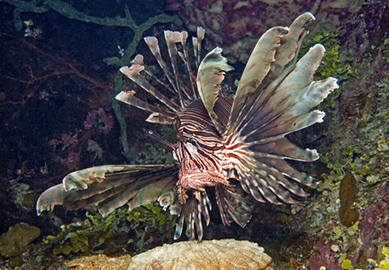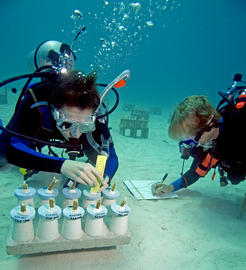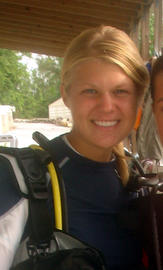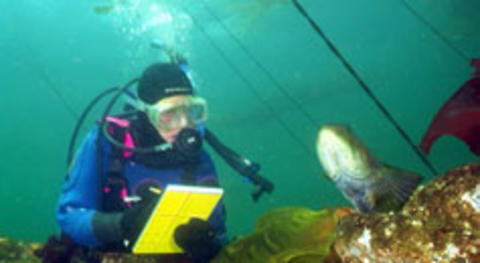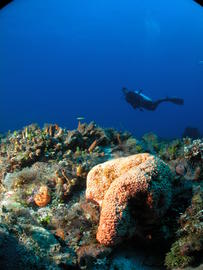In response to the growing threat of lionfish in the Atlantic and the need for coordinated planning, REEF, NOAA and the USGS are hosting a technical workshop on Non-native Marine Fish Introductions of South Florida in the Florida Keys June 18 and 19. The workshop, jointly funded through a recent Mote Marine Laboratory’s Protect Our Reefs grant, NOAA’s Exotic Species and National Marine Sanctuary Programs and the Gulf and Atlantic States Regional Panel on Aquatic Invasive Species,will bring together personnel from more than 18 different agencies and organizations.
As many of you are aware, the recent invasion of Indo-Pacific lionfish into Atlantic waters has been causing great concern among researchers, marine park and fisheries managers, and divers. REEF, in partnership with Bahamian dive operators Stuart Cove and Bruce Purdy, NOAA, the USGS, the National Aquarium in Washington DC, the Bahamian Government and university groups, has spearheaded the field research for this rapidly expanding problem.
A Big Win-Win: Have a Great Dive Trip in Key Largo and Support REEFFor REEF Members: Amy Slate’s Amoray Dive Resort will donate 20% of the cost of your Key Largo dive vacation to REEF. This offer of support has no time or package restrictions. Contact the folks at Amoray for more information.
During the last week of April, divers from around the country gathered at Amoray Dive Resort in Key Largo, Florida for a REEF Fish Behavior Tour hosted by Ned and Anna DeLoach. After making two morning dives each day, the group spent their late afternoons and early evenings attending entertaining talks about the myriad fish they encountered on the reef. Lad Akins, REEF’s Special Projects Director, dropped by to explain the science behind the recent invasion of Indo-Pacific lionfish in the western Atlantic.
REEF is pleased to welcome Stephanie Roach from Camp Hill, PA as the 2008 REEF Summer Intern and Great Annual Fish Count Coordinator (GAFC). Her internship is supported by the Our World Underwater Scholarship Society. The REEF internship program provides college age juniors, seniors and graduate students the opportunity to experience working at a nonprofit environmental organization. REEF interns assist REEF staff with education, outreach and a multitude of programming.
Once again, it is that time of year when many of you are getting out on the water and conducting REEF Fish Surveys. I have put together a few bullet points based on my experiences surveying with members and answering questions on techniques and things to watch out for when filling out your data sheets. Here are a few tips:
This year we would like to get more volunteers into the water conducting fish surveys. The fun part of the GAFC is not just the talks, but afterward getting into the water to do the surveys. You can help by organizing a GAFC dive. It's easy to do:
REEF’s mission is to empower recreational divers and snorkelers to contribute meaningfully to marine conservation through our REEF Volunteer Survey Project. In order to carry out this effort, REEF offers free membership, monthly e-news, an annual newsletter and access to numerous marine conservation resources and information.
The idea of an annual fish monitoring came over 25 year ago, with the first official Great American Fish Count (GAFC) in 1992. Dr. Gary Davis led the Channel Islands National Park effort as way to encourage sport divers to report fish sightings. The small number of marine scientists, the immensity of the oceans and the scarcity of funding required that volunteers be trained to assist with a nation-wide fish monitoring effort.

